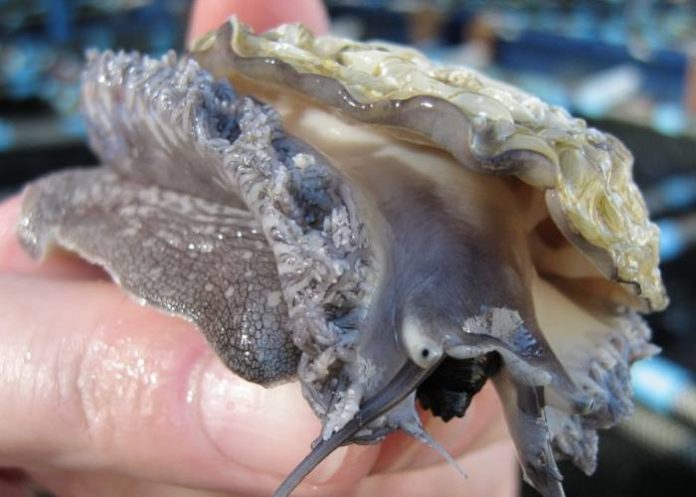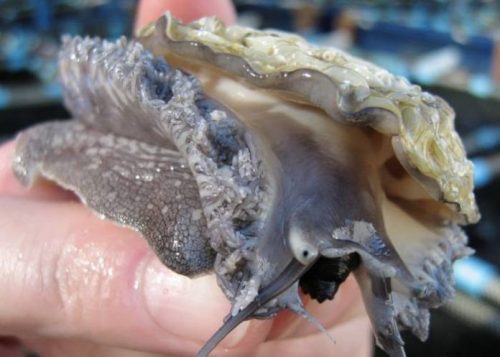
Poachers linked to South African drug gangs are threatening the existence of a species of abalone, a sea snail that is highly prized by restaurants in China, a new report says.
Stocks of abalone are declining at an unprecedented rate, according to research by conservation group Traffic.
The affected abalone species, Haliotis midae, is only found in the waters off the coast of South Africa.
Traffic wants it to be put on the global list of endangered species.
About 96 million abalone are thought to have been poached since 2000.
Every year some 2,000 tonnes of abalone flesh are dried, and smuggled abroad, mostly by air to Hong Kong and beyond, where they are re-hydrated and served as a gastronomic treat.
South Africa has a number of measures in place to protect abalone, but once they are taken out of the country there are no measures in place to prevent its export from the continent.
The country has been losing an estimated $42m (£31m) per annum through the rampant illegal harvesting of the mollusc, Traffic found.
It says that up to 43% of the illegally harvested abalone was traded through a number of non-abalone-producing sub-Saharan African countries to Hong Kong between 2000 and 2016.
Efforts to curb the illegal trade have largely roundly failed, Traffic adds.
Licensed wild abalone farming does take place and the molluscs are also raised in large vats of sea water close to the shore.
Drug gangs
The study also found that economic disparities in South Africa’s Western Cape province had driven poor communities to get involved in the illegal poaching.
Local drug gangs are believed to be behind the illegal trade, making huge amounts of money as the wild abalone stocks decrease, it said.
“You have whole cohorts of people along the coast that are involved, and their work experience is only within an illicit economy,” report author Markus Bürgener said.
The organisation proposes provisions requiring traders to account for the supply chain of abalone products, so that authorities can weed out illegal poaching.
It also called for the molusc to be listed on the Convention on the International Trade in Endangered Species of Wild Fauna and Flora (Cites), which protects the global trade in endangered, threatened and at-risk species.



Comment here